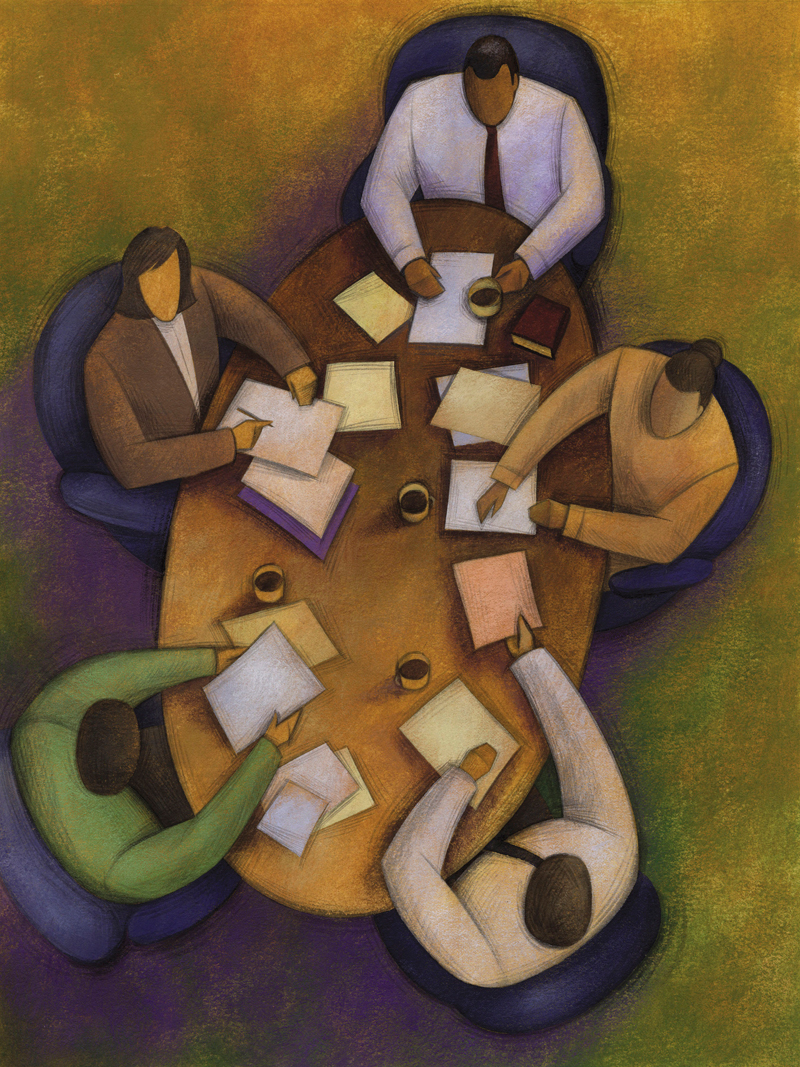
Meetings are an expensive use of resources. Use Richard Arnott’s top tips to make your meetings more effective
A key part of the role of the Executive Assistant is managing time. Not only your own time but those around you and those who you support. It is estimated that the UK alone loses c$140bn in lost productivity every year due to poor time management.
The least productive people are usually the ones who are most in favour of holding meetings
Thomas Sowell
One of the biggest contributors to poor time management is Ineffective Meetings. Meetings are an expensive use of resources and the slightest overrun has serious ripple effects throughout the organization. One meeting overrunning can result in the next 10 meetings starting late or being cancelled with people twiddling their thumbs waiting for attendees to turn up.
In your head just add up what you think the cost is to your organization of running a 3-hour meeting with 20 people attending. Not just the salary costs but don’t forget the other significant costs:
- Opportunity costs
- Cost of overruns
- Preparation and follow up
- Overhead and administration costs
- Travel costs
What goes wrong with meetings?
There are many reasons why meetings can be ineffective. Over the years BMTG has condensed the feedback that we have received into what we consider to be the top 10 killers:
1. No specific, clear-cut “objective” for the meeting, its leader or its participants
2. No meeting agenda
3. Poor time planning and management
4. Too many people and the wrong type of people
5. Failure to prepare properly (people save everything to talk about during a meeting)
6. Inability to present ideas concisely
7. Too many digressions and interruptions
8. Time focused on “why” rather than “how”
9. Making straightforward issues complicated
10. Delaying of final decisions and actions
Combatting the above is not that difficult. Maintaining discipline and having the support of the project chairperson is the critical factor. Ultimately it is the meeting chairperson who creates the environment for the meeting but you have a crucial role to play.
Top 10 tips for effective meetings
1.Purpose (objective) of the meeting made clear beforehand
Quite simply “Why are we in this room?” Never forget that the Agenda is not the Objective. The Agenda is the steps that you will go through to achieve the Objective.
2. Participants come to the meeting prepared
Make sure that everyone knows what is expected of them and when it must be delivered. Chase, chase, chase
3. Agenda items are clear and explicit
Absolute clarity as to the subject matter with times added for each subject under discussion.
4. Appoint a Timekeeper
This can be you or can be rotated amongst the attendees if the meeting is a regular event. The role of the timekeeper is to advise the person speaking and the Chairperson that the time allocated to the subject is getting close or is going to be exceeded. Ultimately it is the Chairperson who decides.
5. Contributions are limited to those which are useful and relevant
There are 24 hours every day – make people have discussions outside of the meeting. Many people use meetings to “Grandstand” ie to show off in front of the Boss.
6. Membership is restricted to those affected by the issues being discussed
Probably the most difficult one to implement but the one with the greatest impact overall. We all know the professional meeting attenders in our businesses. Well, it’s time that they did some more effective work. If they aren’t needed, do not invite them. You will be surprised how few actually complain.
7. Relevant information is at hand
If you are responsible for the information required for the meeting then make sure it is available in a format that can be ready to use. Do not expect people to print reams of attachments. If this is required then say that you will print.
8. Objectives of the meeting are seen to be achieved
At the end of the meeting go back and ask the attendees if the Objective has been achieved? If not you must understand why not and make the necessary changes.
9. Score the Meeting/Name and Shame
It is possible to score meetings. Also naming and shaming is one of the most effective ways of eliminating bad behaviour. If John is persistently late then this should be minuted and published every week. I guarantee that John will not be late again. BMTG provide a free Excel template to all delegates that is a powerful but simple tool that when used will initially horrify your boss but will ultimately drive huge improvements.
10. Decisions are made and actions initiated as appropriate
Nothing happens if no actions are taken. Actions must be recorded against a specific individual who is accountable for making it happen, a delivery date must be agreed. BMTG provides delegates with a free and effective Action Log Template that ensures that no one can hide from their actions.













